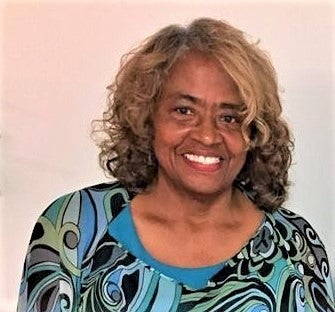Six degrees of separation
Published 5:43 pm Monday, April 3, 2023
|
Getting your Trinity Audio player ready...
|
I was reading one of my favorite books “Acres of Diamonds’ by Dr. Russell Conwell, and I somehow got to thinking about the popular term ‘six degrees of separation, which is the idea that all the people on the planet are connected to other people or their ideas/achievements by six or less connections from each other. I decided to see how that would apply, if I took the fact that having lived in Philadelphia for a long time and having a love for Temple University which was founded by Dr. Conwell, I could join that with what I knew about Conwell and his speaking about the book at Chautauquas all over the country. (More about Chautauqua below.)
So, I started with the fact my daughter Sonja graduated from Temple University. One of the books I gave her to read as a young teen was Acres of Diamonds. Conwell was a beloved speaker at Chautauqua’s all over the country and gave his lecture ‘Acres of Diamonds’ about 6,00 times. Conwell gave that same lecture here in Washington. Washington’s held Chautauqua’s here for several years.
Conwell, a Union Army Captain and Commander of Company F with the Massachusetts’s 46th Volunteer Infantry Regiment, was stationed here in Washington for a while during the Civil War. Born to abolitionists parents, he had a special concern for African Americans and the enslaved. He helped the enslaved find work building forts and breastworks while he encamped here. He returned to Washington in later years to speak at a Chautauqua held here.
I remember my grandmother talking about how her and her husband’s restaurant, and many other ones in the Black community got ready to prepare for Chautauqua (pronounced shuh-talk-wa.) The preparations started at the end of January as plans for making homemade pickles, fried pork rinds, chocolate and pound cakes and fried chicken to sell to massive crowds from all over who would attend Chautauqua.
Chautauqua was an adult education and social movement in the United States from 1874 until the mid 1920’s. It was extremely popular in the late 19th and mid 20th century. Founded in 1874 by Methodist Church leaders for the instruction of Sunday School teachers in Chautauqua NY, it amazingly grew to promote intelligence and culture in all things.
President Theodore Roosevelt said, “Chautauqua was the most American thing about America.”
In Washington it was held annually for a week during the summer months. Most of the events were held under many large tents in the area near Main and Bonner Street.
It was promoted as a week of fun and interspersed with lectures and music of the best kind. It drew enormous crowds of Washington residents as well as visitors from towns far and near.
There were many events scheduled for each day of the week. Washington’s first Chautauqua in June 1914 featured an automobile parade, marching bands, and motion pictures shown at the Gaiety, New and Gem Theaters on Main Street. There were lectures from nationally known speakers and preachers. Shakespearian plays were performed as well as the comic opera ‘The Mikado.’ A Black String Musical Band, and an Italian string band were on hand to delight the crowds. Oratorical artists from Boston, and spirituals performed by Black churches also provided entertainment, learning and culture for all. Washington residents and attendees from all over eastern NC enjoyed the activities and Washington businesses large and small greatly benefitted. Many of the Black-owned hotels, restaurants and boarding houses enjoyed large profits during the events.
.
Chautauqua was a huge success and economic boost for Washington. The following years did well also, but sadly the interest in Chautauqua waned and the last one was held in 1922.
The name Chautauqua (meaning ‘two moccasins tied together’ or ‘unity’ actually originated in North Carolina. It was the name of a Tuscarora Indian Village that was located where the town of New Bern is today. When the Tuscarora migrated to Upstate New York, they named their new home Chautauqua. It is here where the Chautauqua Assembly Movement started.
Now for one more connection to Chautauqua. My husband Milton attended North Carolina Central University in Durham. The University was first named by its founder James E. Shepard, the ‘National Religious Training School And Chautauqua For The Colored Race’ in affiliation with the Chautauqua Movement in 1909. The University retained that name until 1915. It had several other name changes over the years and in 1969 was named North Carolina Central University.
Leesa Jones is a Washington native and Co-Founder and Curator of the Washington Waterfront Underground Railroad Museum





